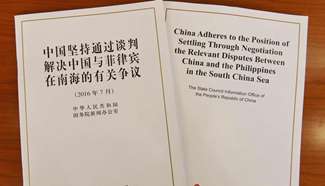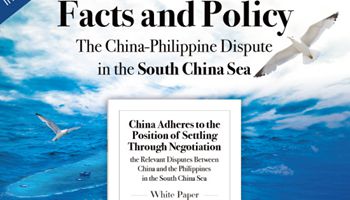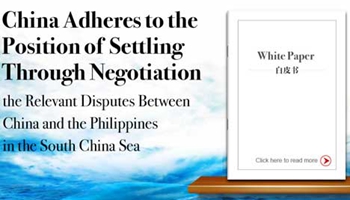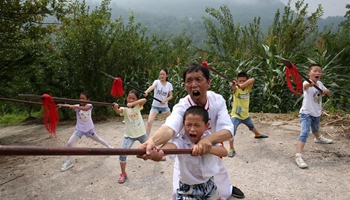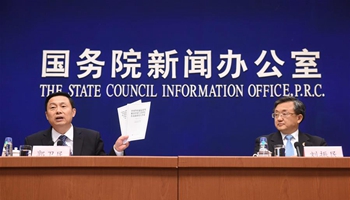BEIJING, July 13 (Xinhua) -- "Let those who tied the bell on to the tiger be the ones to untie it," runs the Chinese proverb: Trouble is best solved by those who caused it.
Whatever the government of the Philippines was thinking when it decided to put its disputes with China before a kangaroo court, it was surely not that the process would bring peace and harmony to a tranquil tropical sea.
China has stated time and time again that it would not accept the tribunal's opinion and will adhere to settlement of disputes through direct negotiation. That policy stands still, like a rock.
As neighbors facing each other across the sea, China and the Philippines have been friends for generations. There were no territorial disputes between them until the 1970s, when the Philippines suddenly decided that some of China's islands and reefs were in fact theirs and occupied them without so much as a by-your-leave. China's reaction to this affront has been restrained, to say the least. It is not too great a leap of understanding to conclude that China is the encroached upon rather than the encroacher.
In 2013, the government of former Philippine President Benigno S. Aquino III ignored previous agreements with China and went running to The Hague. Aquino has since become a figure of purely historical relevance, and the job of cleaning up his mess has fallen to the new Philippine President, Rodrigo Duterte, who seems ready and willing to talk directly with China.
Even after the absurd arbitration award, China retains its faith in a peaceful solution and would welcome direct talks over the negotiating table.
A statement issued by the Chinese leadership on Tuesday said that China is still ready to resolve disputes peacefully through negotiation and consultation with those states directly concerned. China will make every effort to seek win-win results and maintain the peace that is so vital to stability and prosperity in the region.
Bringing the issue back to the negotiation table, and thereafter to a long-term solution, is in the interests of all parties, and is now down to the Philippines. President Duterte has begun to make positive gestures, but is his country ready to walk his talk?
China has said that the door is always open, but will not welcome any unreasonable demands nor sit idly by if deliberately provoked.
China will now decide whether to declare an Air Defense Identification Zone (ADIZ) in the South China Sea in accordance with the extent of a threat. "If our security were threatened, of course we have the right," Vice Foreign Minister Liu Zhenmin told the press.
Chinese people do not make trouble, but are not cowards when trouble is made for them. Whether the South China Sea becomes a troublesome tempest of confrontation or the peaceful waters of cooperation and common prosperity is up to the Philippines and its friends.
Is it not better to remain friends with a good neighbor than to allow some faraway superpower to stir up conflicts at the doorstep? The destiny of the Philippines is in its own hands.


